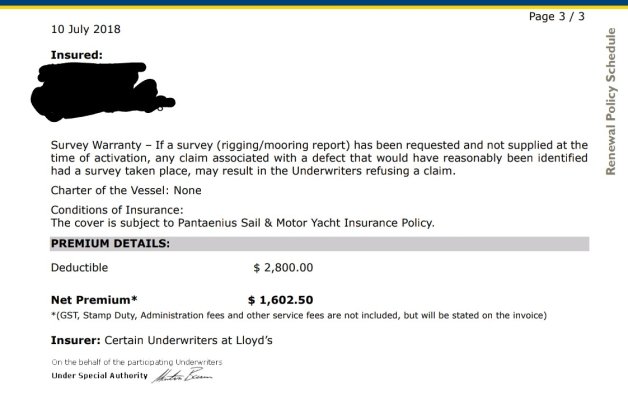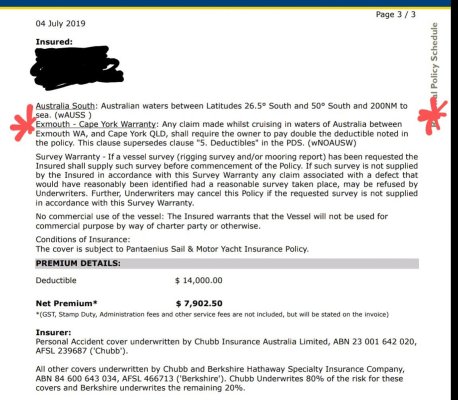That is the way it is supposed to work, amongst a reference class with approximately equal risk. For example health insurance, where your risk of getting serious disease are about the same as the next guy.
But talking about boats, the risk is greatly dependent on geographic location details, so asking someone in the PNW to share the risk of hurricanes in Florida is not what insurance is - or should be - about. If the premiums in the hurricane belt are increased to cover the losses and expected future losses, then the problem solves itself: those to whom the cost is worth it buy insurance, those who chose to sustain the loss themselves go uninsured. It would be nice if those living there but having a plan, moving the boat, and taking precautions would also see insurance commensurate with their efforts.
The reality of insurance is less than that vision of perfection though. The broad brush spreads the risk farther and wider than it ought to go, and treats everyone in Ft. Myers the same, plans and mitigation be damned. I see this in my house insurance, my aircraft insurance, my auto insurance, and my boat insurance. Individual properties with 3x the risk are paying only 2x the premium for example. Guess who pays the rest?


